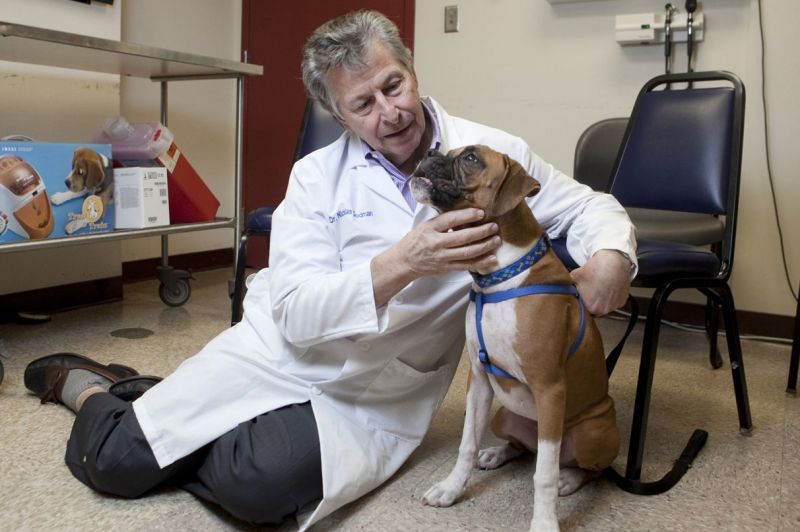Recognizing the Duty of a Vet Behaviourist in Animal Training and Wellness
The duty of a vet behaviourist is important in resolving the elaborate relationship in between pets and their proprietors. They integrate vet medicine with insights from pet behavior scientific research to take on concerns like aggressiveness and stress and anxiety. Unlike traditional instructors, their method concentrates on the underlying causes of these habits. This nuanced perspective questions regarding the performance of traditional training methods and exactly how a deeper understanding can transform pet health. What methods do they employ to accomplish these results?
What Is a Vet Behaviourist?
A vet behaviourist is a specific expert that concentrates on understanding and resolving the behavioral concerns of animals, especially animals. Their experience combines vet medication and animal habits science, allowing them to diagnose and treat a variety of behavior problems - dog behaviourist near me. These specialists typically hold innovative degrees, such as a Master's or PhD in pet actions, and are certified by pertinent companies, ensuring they have a deep understanding of pet psychology
Veterinary behaviourists evaluate animals with thorough monitoring and evaluation, considering elements such as genes, environment, and training history. They establish customized therapy strategies, which may include desensitization techniques, favorable support approaches, and environmental adjustments. Partnership with pet owners is important, as they supply support and assistance throughout the training process. Eventually, the goal of a veterinary behaviourist is to improve the wellness of the pet while cultivating an unified partnership in between pet dogs and their proprietors.
The Significance of Comprehending Animal Behavior
Understanding pet habits is vital for both pet dog proprietors and specialists in the area of animal care, as it lays the foundation for efficient communication and training. Recognizing how pets regard their setting and react to stimuli makes it possible for caregivers to develop a much more harmonious living situation. Understanding right into behavior hints, such as body language and articulations, promotes stronger bonds between pet dogs and their proprietors. By appreciating the all-natural instincts and needs of various types, individuals can customize their training approaches to accommodate these factors, advertising much better knowing and cooperation. Furthermore, a solid understanding of behavioral science help in identifying stress factors and prospective triggers, enabling aggressive interventions. On the whole, recognizing pet behavior not only enhances the health of animals but likewise enriches the experiences of those who care for them, ultimately bring about healthier, better relationships.
Common Behavioral Issues Resolved by Veterinary Behaviourists
Vet behaviourists frequently attend to usual behavioral concerns in animals, consisting of aggression and anxiety feedbacks. They likewise concentrate on anxiety and stress and anxiety management, which can significantly influence an animal's wellness. Recognizing these issues is crucial for developing efficient training and treatment strategies.
Hostility and Concern Feedbacks
While numerous family pet proprietors might view aggressiveness and concern feedbacks as simple behavioral problems, these complicated reactions usually stem from underlying anxiety or past trauma. Veterinary behaviourists play a necessary duty in identifying the root causes of these behaviors, which can materialize in numerous kinds, consisting of growling, attacking, or extreme fear of specific situations. Comprehending these triggers is crucial for developing efficient training methods customized per pet dog's special conditions. Behaviourists use approaches such as desensitization and counter-conditioning to aid pet dogs handle their worries and hostility. Furthermore, they inform animal owners concerning ideal monitoring strategies, highlighting the value of persistence and uniformity. Dealing with aggressiveness and fear responses not only enhances the animal's lifestyle but additionally enhances the bond between family pet and proprietor.
Anxiety and Stress Monitoring
Anxiety and tension prevail problems that many pet dogs deal with, often arising from modifications in their environment, absence of socialization, or previous unfavorable experiences. Veterinary behaviourists play a vital function in identifying the underlying sources of these concerns. They use different strategies, including behavioral adjustment, desensitization, and counter-conditioning, to help pet dogs handle anxiousness. In enhancement, they may recommend ecological modifications, such as creating risk-free rooms or supplying enrichment tasks that promote leisure. Collaboration with family pet owners is important, as behaviourists direct them in recognizing their animal's signals and applying effective coping methods. By addressing anxiety and anxiety, vet behaviourists contribute significantly to boosting the overall wellness and top quality of life for animals and their households.
How Veterinary Behaviourists Differ From Typical Trainers
Veterinary behaviourists differ from standard trainers mainly why not try this out in their academic histories and training. While standard trainers commonly concentrate on obedience and basic commands, veterinary behaviourists highlight understanding and addressing underlying behavior concerns, including clinical considerations into their approach. This unique focus enables them to supply an extra detailed treatment for animals with complicated behavioral difficulties.
Education And Learning and Training Differences
Comprehending the difference in between vet behaviourists and standard fitness instructors is essential for family pet proprietors looking for reliable training remedies. Veterinary behaviourists have postgraduate degrees in vet medicine, commonly adhered to by specialized training in animal practices. This education and learning furnishes them to resolve intricate behavioral concerns that might come from medical conditions or psychological elements. On the other hand, typical fitness instructors normally have qualifications from training programs that concentrate on obedience and basic commands without diving right into the underlying emotional or medical aspects. While both professionals intend to boost family pet behavior, veterinary behaviourists can detect and treat behavioural problems holistically, incorporating medical understanding into training methods. This critical difference highlights the relevance of choosing the ideal expert based upon the pet's specific demands.
Concentrate On Behavioral Issues
Addressing behavioural issues needs a nuanced technique that differentiates veterinary behaviourists from conventional instructors. While conventional fitness instructors usually concentrate on obedience and basic commands, vet behaviourists explore much deeper into the underlying sources of bothersome behaviors. They use a substantial understanding of animal psychology and therapy techniques, which are rooted in clinical study. This proficiency enables them to recognize problems originating from anxiousness, anxiety, or hostility, as opposed to merely addressing surface-level symptoms. Furthermore, veterinary behaviourists examine the animal's overall well-being, thinking about environmental aspects and the animal's background. By incorporating medical knowledge with behavioural strategies, they offer customized services that promote long-term behavioural adjustment, guaranteeing both the pet dog's and proprietor's lifestyle are noticeably boosted.
Medical Factors To Consider Consisted Of
While conventional instructors may ignore underlying medical problems, veterinary behaviourists focus on a complete assessment of a family pet's wellness as a fundamental action in check my blog resolving behavioral troubles. This strategy enables them to recognize prospective clinical problems that might add to unwanted behaviors, such as anxiousness, discomfort, or neurological problems. By integrating medical analyses right into their technique, veterinary behaviourists can team up with veterinarians to guarantee an alternative understanding of the family pet's wellness. Additionally, they can advise suitable treatments or modifications to training plans based on medical findings. This comprehensive viewpoint distinguishes vet behaviourists from standard fitness instructors, as they attend to both behavioral and health-related aspects, eventually causing much more reliable and lasting outcomes for pet dogs and their owners.

The Refine of Functioning With a Vet Behaviourist
Teaming up with a veterinary behaviourist entails a systematic approach to dealing with an animal's behavioral concerns. The process starts with a considerable evaluation, where the behaviourist gathers detailed info regarding the family pet's background, environment, and details habits that are problematic. This usually consists of surveys, interviews with the animal owner, and often try this out observations of the pet dog in its atmosphere.
Adhering to the evaluation, the veterinary behaviourist creates a tailored treatment strategy that might consist of behavior adjustment strategies, training techniques, and, if needed, referrals for clinical evaluations. dog behaviourist near me. The plan is designed to be practical and achievable, making sure that it fits flawlessly right into the pet owner's way of living
Succeeding follow-up sessions are important to keep track of development, adjust methods, and give assistance. This collective effort not only aims to modify undesirable habits however likewise to boost the total wellness of the pet, making certain a harmonious partnership between the animal and its proprietor.
Enhancing Your Family pet's High quality of Life Through Behavioral Support
Enhancing an animal's lifestyle via behavior assistance is important for fostering a healthy and satisfying relationship in between family pets and their proprietors (dog behaviourist near me). Vet behaviourists play a vital role in determining and dealing with behavior concerns that may prevent an animal's health. Through tailored techniques, they aid relieve anxiety, concern, and aggressiveness, eventually promoting an extra well balanced and happy animal
Behavioral assistance encompasses different strategies, consisting of favorable support, ecological enrichment, and socializing. By carrying out these methods, owners can produce a caring setting that motivates favorable habits. This not just boosts the animal's psychological health but also enhances the bond in between pet and proprietor.
Additionally, regular assessments with a vet behaviourist warranty that any emerging behavioral worries are immediately addressed, preventing rise. Overall, purchasing behavior support is an aggressive strategy that considerably enriches an animal's life, bring about enhanced physical and psychological health results.
Regularly Asked Inquiries
What Credentials Do Vet Behaviourists Have?
Vet behaviourists generally hold a veterinary degree, followed by specialized training in pet habits. Several additionally have certifications from identified organizations, demonstrating their knowledge in attending to pet habits issues and advertising general pet well-being.
Can Veterinary Behaviourists Suggest Medication for Family Pets?


Vet behaviourists, possessing vet degrees and specialized training, can indeed suggest drug for family pets. This ability permits them to deal with underlying behavioral issues properly, typically incorporating medicinal therapy with behavior modification methods for finest outcomes.
For How Long Does Behavior Modification Usually Take?
Behavior treatment period varies significantly, normally ranging from a few weeks to numerous months. Variables influencing this timeline include the family pet's certain problems, consistency of training, and the proprietor's engagement while doing so.
Are Remote Examinations Offered With Veterinary Behaviourists?

Exactly how Much Does a Veterinary Behaviourist Examination Cost?
The price of a vet behaviourist appointment commonly varies from $100 to $300, depending upon variables such as place, experience, and session size. Additional fees might look for follow-up assessments or specialized services.